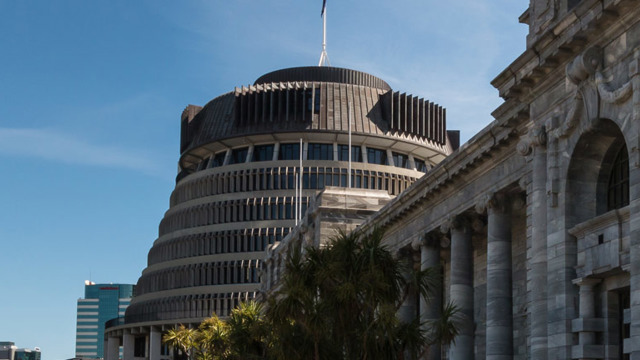Matter of Opinion
Localism - Spring or Autumn in the policy garden?
Earlier this year, Watching Brief opined that the Government's focus on localism represented one of the "golden threads" linking the coalition parties. Eleven months since taking office, localism has yet to bloom. Much more familiar themes like fiscal constraint and efficiency dominate the narrative instead. That leads Watching Brief to speculate about two mutually inclusive possibilities:
- First, the current Government may conform to the overwhelming trend at play for all post-1840 governments: greater centralisation.
- Second, the institutions of localism and devolved services may matter most. If so, we should look to initiatives specific to the coalition Government like social investment and charter schools, and not look at local government as a proxy for localism.
When it comes to local councils, the localism and devolution scorecard looks neutral at best. For example:
- Building approvals. A proposal this week would see the number of building consent authorities reduce, suggesting that district and city councils will lose some or all of these powers.
- RMA reform. Cabinet agreed to reduce the number of regulatory plans to one plan per region, jointly prepared by regional and district councils. The next round of RMA legislative reforms will reflect Cabinet's policy decisions.
- Local Water Done Well. As the name says, water infrastructure services remain in local control. That said, the criteria for financial sustainability criteria sits in the hands of central government when councils need to submit Water Services Delivery Plans in September 2025.
- Māori wards on councils. The 45 councils that decided to introduce Māori wards since late 2020 without polling their communities were required to vote on whether to scrap their Māori wards or constituencies. Despite all but two councils voting to retain Māori wards, all will need to hold binding referenda on the issue at the 2025 local body elections.
- Council spending and activities. The Coalition Government's Q4 Action Plan released this week reinforces the idea central direction to councils, and a focus on cost of living issues, by foreshadowing potential constraints on councils when it says "take Cabinet decisions on measures to get local councils back to basics."
Although early days, a regionalised replacement for the mega-merged nationwide polytechnic, Te Pūkenga, has yet to emerge. Further, cost-constraint and budget re-allocation appears the main focus right now at Health New Zealand | Te Whatu Ora rather than greater devolved decision making to communities. The NGO sector has also not seen a flowering of localism and service devolution. As an example, an estimated 190 NGO service providers have lost contracts with Oranga Tamariki | Ministry for Children as contract rationalisation swept through the department this year.
If we do see examples of localism and increased devolution, these will likely come outside the existing institutions of central and local government. Watching Brief will keep a close eye on the following examples to see how experiments in localism and devolution emerge:
- Charter schools. The legislation implementing charter schools became law this week. The Government's agenda here could create a huge shift towards localism at the level of individual schools.
- Social investment. The Social Investment Agency started work on 1 July 2024 and details as to how the new department will define social investment, and how the associated social investment fund will operate, will likely emerge over the coming months. NGOs, iwi, and community providers ensuring that their delivery and reporting models complement the social investment approach as it develops looks a good path to devolved services that meet the needs of local communities.
- Regional and city deals. The details remain scant, however, we know that Central Government wants some good examples proposed by and agreed with regions by the end of this Parliamentary term.
Governing is always tough, and "events" always arise. The fiscal constraints of the moment and the need to meet cost of living pressures understandably occupy the Government's attention right now. It remains to be seen whether greater service devolution and localism can survive the immediate demands of the moment and become one of the defining policy developments of the coalition.
In other news
2024 sees much of the world go to the polls. Countries with approximately 40 percent of the world's population and 60 percent of GDP have or will vote this year. Perhaps the most notable is just 32 days away – the United States Congressional and Presidential elections. As staid lawyers, Watching Brief does not get into the predictions game. That said, in the Presidential election Kamala Harris will almost certainly win more popular votes than Donald Trump. The remaining question is who can distribute votes more "efficiently" around the US by winning handfuls of swing voters in "battleground" states to win the electoral college votes that actually elect the president. The United Kingdom election provides an extreme example of the same issue. In the July 2024 election, Sir Keir Starmer's Labour Party turned 34 percent of the popular vote into 63 percent of MPs. For its foibles, MMP in New Zealand creates a truly nationwide election through the Party Vote. Therefore, the disproportionate effect of handfuls of voters based on geography no longer factors as a serious political issue here.



